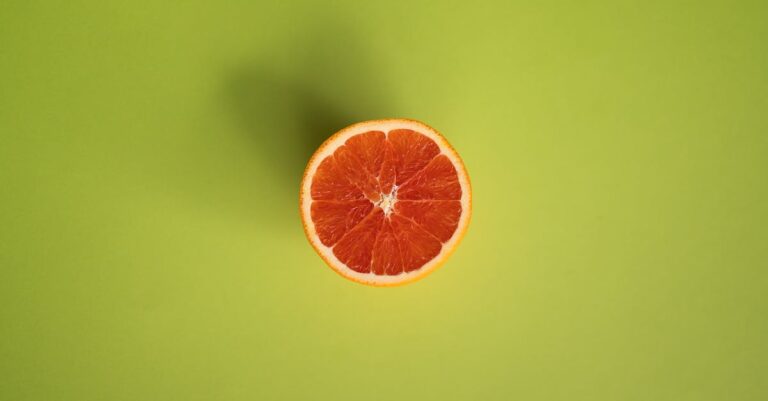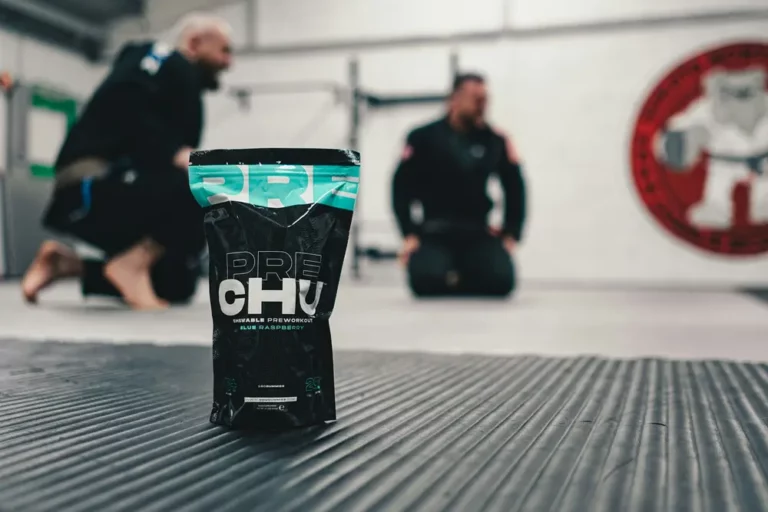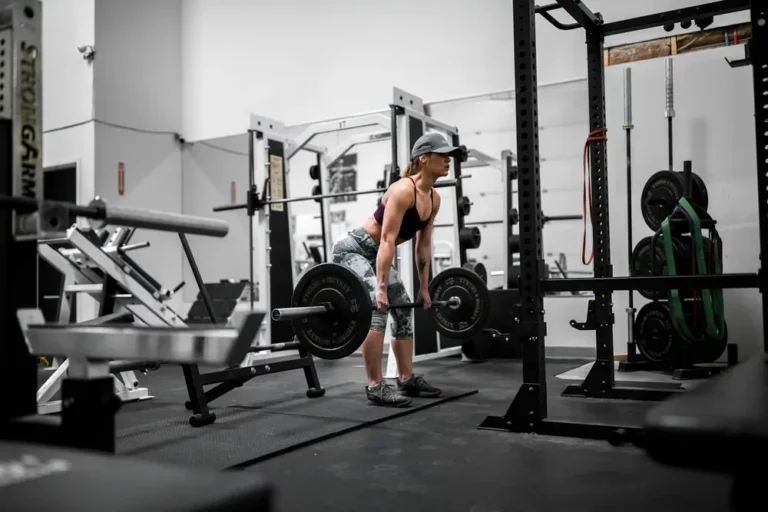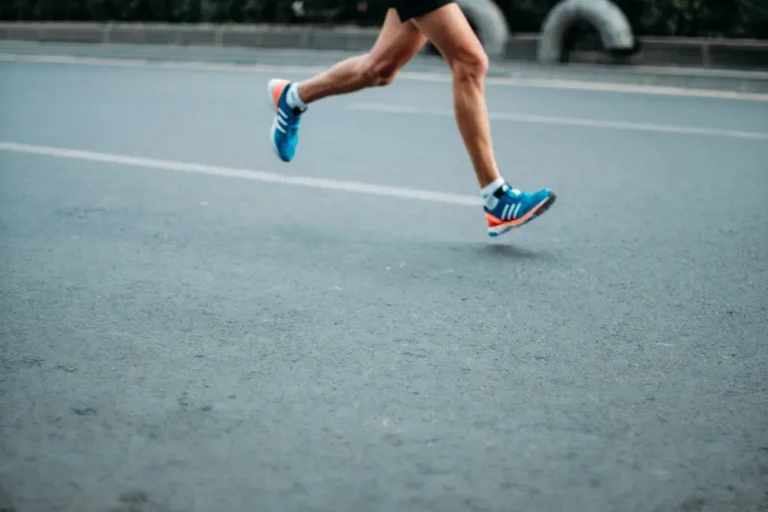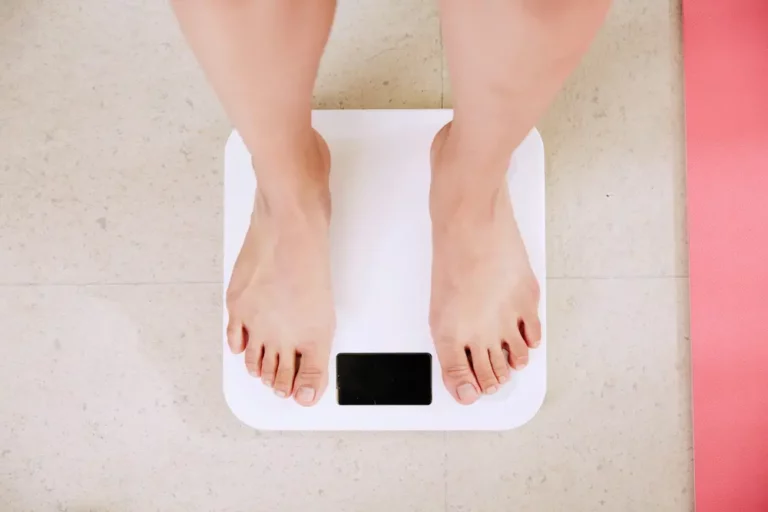Should I Take Creatine for Belly Fat Loss? Pros & Cons Explained
Losing belly fat can feel like a never-ending battle. We’re constantly bombarded with do’s and don’ts, making it tough to figure out what actually works. Among the sea of questions, one that pops up often is whether taking creatine while trying to shed those stubborn inches around the waist is a good idea.
I’ve been there, scrolling through endless articles and forums, trying to find a straight answer. So, let’s dive into the world of creatine and fat loss. It’s not just about building muscle; it might just be the ally you need in your journey to a leaner, more toned physique.
Understanding Creatine and Its Impact on Weight Loss
To really grasp if creatine should be part of my belly fat loss journey, I first delved into what it actually is and its role in muscle energy. Creatine, a substance found naturally in muscle cells, helps supply energy for heavy lifting or high-intensity exercise. It’s not just about having more energy to push through my workouts; creatine plays a crucial role in the synthesis of ATP (adenosine triphosphate), the body’s primary energy currency. When I exercise, ATP depletes rapidly, and my body needs to replenish it fast to keep up with the energy demand. That’s where creatine steps in. By increasing the availability of creatine phosphate in my muscles, it helps produce more ATP, which in turn can support higher intensity training for longer periods. This process is vital not just for endurance, but for short-term, high-intensity bursts of activity, which are integral to many weight loss training programs.
Creatine’s Effects on Exercise Performance and Muscle Recovery
Understanding creatine’s role, I was curious about how it impacts exercise performance and muscle recovery, specifically in the context of losing belly fat. Research suggests that creatine improves exercise performance, making workouts both more effective and efficient. This enhanced performance is attributed to creatine’s ability to support more intense and longer-lasting exercise, allowing for greater adaptations in muscle strength and size.
Moreover, creatine is known to aid muscle recovery. After a rigorous session at the gym, muscle repair and new muscle growth are crucial. This is where creatine shines by reducing protein breakdown and promoting cell hydration, creating an environment conducive to muscle repair and growth. Essentially, the faster my muscles recover, the sooner I can get back into the gym for another productive session. This accelerated recovery process is not just pivotal for building lean muscle but also for shedding fat, as it allows for consistent training without the setback of prolonged recovery periods.
Evaluating the Relationship Between Creatine and Belly Fat Loss
When I started my fitness journey, losing belly fat was at the top of my list. Along the way, I encountered various opinions on whether creatine should be part of my supplement stack. Here’s what I’ve learned about the complex relationship between creatine and belly fat loss.
Potential Benefits of Creatine for Enhanced Workout Performance
One of the first things I discovered about creatine is its proven capability to boost workout performance. Creatine plays a critical role in energy production, especially during high-intensity, short-duration exercises like sprints or heavy lifting. By increasing the body’s stores of phosphocreatine, it helps rapidly regenerate ATP (adenosine triphosphate), the primary energy carrier in our cells.
Here’s a quick look at how this translates to potential benefits:
- Enhanced Muscle Endurance: With more energy at my disposal, I could push myself harder during workouts, leading to more effective sessions.
- Increased Muscle Strength and Size: Creatine supports muscle fiber growth by hydrating muscle cells—a process that contributes not only to strength but also to a healthier, more toned appearance.
- Accelerated Recovery: I noticed an improvement in my recovery times, minimizing downtime between vigorous workouts.
Misconceptions About Creatine and Weight Gain
The mention of weight gain often scares people away from creatine, especially those of us keen on losing belly fat. But there’s a nuance to understand here. The initial weight gain commonly associated with creatine is mostly water retention in the muscles, not fat. This process actually helps muscles work harder and grow.
- Muscle Not Fat: Any weight gain is more muscle mass, not fat. Over time, the enhanced muscle metabolism can even help in fat loss.
- Temporary Water Weight: The slight increase in water weight is a short-term effect. With continued training and proper hydration, it becomes negligible.
- Fat Loss is Unaffected: Most importantly, creatine doesn’t hinder fat loss. Combined with regular exercise and a balanced diet, it can indirectly support the journey to a leaner physique by improving workout efficiency and muscle recovery.
In my experience, navigating the world of supplements requires a blend of personal experimentation and research. Creatine, with its compelling benefits for exercise performance, holds promise for those of us striving to lose belly fat, as long as we approach it with the right expectations and understand its effects on our bodies.
Creatine’s Influence on Water Retention and Body Composition
When I first added creatine into my regimen, understanding its effects on my body was crucial. Creatine, fundamentally, enhances the body’s capacity to produce energy rapidly. This boost not only aids in increasing the intensity of workouts but plays a significant role in how muscles retain water. Creatine pulls water into the muscle cells, amplifying their size slightly. This phenomenon is often mistaken for weight gain, but it’s essential to recognize that it’s not fat being added but water. This water retention can actually be beneficial, as it supports the muscles in recovery and growth. Hydration is key when using creatine; I always make sure I’m drinking plenty of water to aid the process and mitigate any potential muscle cramps, a common side effect when one is not properly hydrated.
Differentiating Between Muscle Mass Gain and Fat Loss
Distinguishing between muscle mass gain and fat loss while using creatine can be perplexing. Initially, I saw the number on the scale go up and almost panicked, thinking I was gaining fat instead of losing it. However, I learned that the scale doesn’t tell the whole story. As muscle mass increases, so does one’s weight, since muscle is denser than fat. Muscle mass gain is a positive development, as it enhances metabolic rate, meaning my body burns more calories even at rest. The key is to focus less on the scale and more on body composition changes. Measurements and how my clothes fit became more reliable indicators of my progress. I incorporated resistance training into my workouts to maximize muscle building, capitalizing on creatine’s energy-boosting properties. This strategic approach helped me gradually see a reduction in belly fat as my muscle tone improved.
Strategic Use of Creatine During Fat Loss Phases
When I’m navigating through a fat loss phase, specifically aiming to reduce belly fat, integrating creatine into my routine has always been a topic of internal debate. After much research and personal experience, I’ve figured out a couple of strategic approaches to using creatine that might help others going through the same journey.
Incorporating Creatine into a Calorie-Deficit Diet
The challenging part of any fat loss phase is maintaining a calorie deficit without losing muscle mass. Here’s where creatine steps in as my little secret weapon. By ensuring that my muscles are well-supplied with the energy produced by creatine, I found that not only could I maintain my muscle mass, but I could also potentially increase it even while on a calorie-restricted diet. The theory behind this is pretty straightforward; creatine supplies your muscles with additional ATP (energy), which is a boon during those high-intensity workouts, especially when your body is getting fewer calories than usual.
By incorporating creatine into my diet regimen, I’ve noticed a significant improvement in my performance. This improvement isn’t just a placebo; studies have consistently shown that individuals taking creatine while engaging in resistance training lose more body fat compared to those who don’t.
So, my take on it? Including creatine in a calorie-deficit diet can specifically target belly fat reduction by preserving and potentially increasing muscle mass, which in turn boosts my metabolism, aiding in further fat loss.
Addressing Potential Digestive Discomfort and Proper Dosage
One of the initial hiccups I encountered with creatine was digestive discomfort. It’s a common side-effect reported by many, but I’ve learned that it often comes down to the dosage and how you’re incorporating it into your diet. After some tweaking, I concluded that starting with a lower dosage and gradually increasing it was the key to minimizing any uncomfortable digestive responses.
The general consensus from the scientific community suggests starting with a loading phase of 20 grams per day, divided into four servings, followed by a maintenance phase of 3-5 grams daily. However, to sidestep potential digestive issues, I started directly with the maintenance phase and noticed no negative digestive effects, while still reaping the benefits of creatine.
Another tip I’ve discovered is ensuring my creatine intake is with a meal that contains both carbohydrates and proteins. This seems to promote better absorption and reduces the chances of any digestive discomfort.
In essence, while integrating creatine into my fat loss strategy, especially when trying to lose belly fat, it’s crucial to be mindful of the dietary balance and the dosage. My body’s positive response to these strategic incorporations has made creatine a staple in my supplementary regimen during calorie-deficit periods.
H2: Analyzing Research Findings on Creatine and Fat Loss
H3: Reviewing Scientific Evidence on Creatine and Weight Management
In my deep dive into the subject, I’ve stumbled upon several research papers that shed light on the curious relationship between creatine and weight management. One pivotal study I came across was published in the Medicine and Science in Sport and Exercise journal. This investigation suggested that creatine, when taken just before or after workouts, can significantly enhance muscle strength and size due to improved workout performance. But what about fat loss? Well, the study also hinted at an indirect benefit where increased muscle mass could accelerate metabolism, thus aiding in fat loss.
What’s truly fascinating is that creatine itself is calorie-free. This means it doesn’t directly contribute to fat gain. Instead, its role in boosting energy for high-intensity training means you could potentially burn more calories during each session. I found it important to note that about half of the creatine our bodies use comes from our diet, while the rest is synthesized in the liver and kidneys. With supplementation, we’re essentially topping off our natural stores, further priming our bodies for performance and, indirectly, fat loss.
H3: Case Studies and Real-world Applications of Creatine for Fat Loss
Moving from the controlled environments of research to the real world, there are plenty of anecdotal success stories that align with the scientific findings. I’ve personally spoken with individuals who have incorporated creatine into their cutting phases. Many report not only retaining muscle mass while operating on a calorie deficit but also experiencing considerable fat loss, especially around the belly area.
One compelling case involved a friend of mine, Alex. Alex began supplementing with creatine while engaging in a rigorous weight training and cardio routine. Over several months, not only did Alex see an increase in muscle size and strength but also a noticeable reduction in belly fat. This mirrors what studies suggest: that creatine can help retain muscle during calorie restriction, which in turn can keep the metabolism firing and facilitate fat loss.
It’s clear from both scientific research and real-life examples that creatine holds potential benefits for those looking to maintain muscle mass while shedding fat. While it isn’t a magic bullet for weight loss, its ability to support training performance can indirectly contribute to a leaner physique, making it a valuable tool in the weight management arsenal.
H2: Practical Tips for Using Creatine While Targeting Belly Fat
Losing belly fat is a common goal for many, and incorporating creatine into your fitness regimen can be a strategic move. Here, I’ll share some practical tips to effectively use creatine for this purpose.
Recommendations for Creatine Intake During Weight Loss
When talking about shedding weight, especially in the belly area, it’s imperative to focus not just on fat loss but on muscle preservation and strengthening. Creatine shines here. To kick things off, starting with a loading phase is a common approach. During this period, taking 20 grams per day for about 5-7 days fills up your muscle stores of creatine, followed by a maintenance dose of 3-5 grams per day. This method has been backed by numerous studies, suggesting it can indeed help enhance muscle endurance and strength, which indirectly contributes to more efficient fat burning due to an increased metabolic rate.
Taking creatine just before or after your workout maximizes its effectiveness. The timing matters because your muscles are more receptive to nutrient intake post-exercise due to the increased blood flow. Therefore, whether you’re lifting weights, doing HIIT, or engaging in any resistance training, creatine can offer that extra edge.
Moreover, hydration is key. Creatine pulls water into your muscle cells, which may lead to dehydration if you’re not careful. Ensure you’re drinking plenty of water throughout the day, not just during your workouts. This will help you avoid potential cramping and maintain overall well-being.
Monitoring and Adjusting Creatine Usage Based on Individual Responses
Not everyone responds to creatine supplementation in the same way. That’s why it’s critical to monitor your body’s reaction as you embark on this journey. Keep an eye on changes not just in weight, but in overall body composition. You might notice an increase in muscle mass and a reduction in fat, particularly around the belly area, without significant changes on the scale. This is because muscle is more dense than fat.
If you’re experiencing an increase in muscle size and strength, that’s a good sign you’re on the right track. However, if you notice any adverse effects like bloating or gastrointestinal distress, you may want to adjust your intake. Reducing the dose or splitting it into smaller doses throughout the day can mitigate some of these issues.
Finally, remember that individual bodies react differently to supplements. If you’re not seeing the desired results from creatine alone, consider your overall diet and exercise routine. It’s possible that slight adjustments there, combined with creatine supplementation, will help you reach your belly fat loss goals more effectively.
H2: Making an Informed Decision: Should You Use Creatine for Belly Fat Loss?
When I’m embarking on a fitness journey, especially when it comes to losing belly fat, I’m always on the lookout for ways to enhance my efforts. Lately, creatine has been at the forefront of my mind, sparking questions about its effectiveness and whether it’s a wise addition to my regimen. Let’s delve deep and weigh the pros and cons together.
Weighing the Pros and Cons of Creatine Supplementation
The conversation around creatine is often polarized, though it’s undebatable that it offers significant benefits for muscle endurance and strength. This isn’t just me talking; numerous studies back up these claims. By enhancing water retention in muscles, creatine makes muscles look fuller and supports increased performance during workouts. For someone looking to lose belly fat, the logic stands that more muscle endurance allows for more intense and possibly longer workouts, in turn burning more calories.
Here’s a look at the basic pros and cons:
| Pros | Cons |
|---|---|
| Enhances muscle strength and endurance | Can lead to water weight gain |
| Aids in quicker recovery | Potential for dehydration |
| Zero to low calories | Might cause bloating in some |
| Supports longer, more intense workouts | Requires monitoring for side effects |
However, it’s crucial to note that creatine doesn’t directly target fat loss. Instead, its role in building muscle and improving workout performance can indirectly impact belly fat reduction. This can be quite appealing, but it’s essential to remain aware of the potential downsides, such as bloating and the initial water weight gain, which can be discouraging when you’re trying to slim down.
Consulting Healthcare Professionals Before Starting Creatine
Before I make any changes to my supplement regimen, I find it invaluable to consult with a healthcare professional. This isn’t just about playing it safe; it’s about making smart, informed decisions based on my unique health profile. Every body reacts differently to supplements, and what works wonders for one person might not be the best choice for another.
A healthcare provider can offer insights into how creatine might interact with my existing diet, workout routine, and even other supplements or medications I’m taking. They can help me understand the appropriate dosage and whether the timing of intake matters in my specific case. Moreover, they can guide me on monitoring my body’s response to creatine, advising me on what signs of dehydration or other side effects to watch out for.
Conclusion
Deciding to use creatine while working on losing belly fat is a nuanced choice. It’s clear that while it boosts muscle performance, it’s not a magic pill for fat loss. I’ve learned that talking to a healthcare professional is a smart move to tailor it to my needs. Plus, keeping an eye on how my body reacts helps me tweak things for the better. Creatine can be a powerful ally in my fitness journey, as long as I’m mindful about its role and my goals.
Frequently Asked Questions
Can you take creatine and fat burner?
Creatine and fat burners can be taken together, but it’s essential to know that fat burners, primarily composed of caffeine, might dehydrate you, potentially negating creatine’s water retention in muscles. Consult a healthcare professional for personalized advice.
Should I take creatine if trying to lose fat?
Yes, creatine can be beneficial when trying to lose fat because it helps maintain muscle mass and strength. This preservation of muscle aids in keeping your metabolism active, which could enhance the fat loss process when in a calorie deficit.
Does creatine affect your abs?
Creatine itself doesn’t directly affect your abs. While it helps in building lean muscle mass including those in your core, achieving visible abs requires a combination of body fat reduction, targeted exercise, and proper nutrition beyond just creatine supplementation.
Will creatine help burn belly fat?
Creatine indirectly helps with belly fat burning by boosting muscle mass and the body’s metabolism, making it more efficient at burning calories and fat. However, creatine does not specifically target belly fat; a holistic approach including diet and exercise is needed for fat loss.
Should I take creatine if I want abs?
Using creatine alone won’t carve out abs. While it aids muscle growth and performance, visible abs are more closely tied to diet and overall body fat percentage. Creatine might even cause temporary water retention, potentially obscuring muscle definition.



